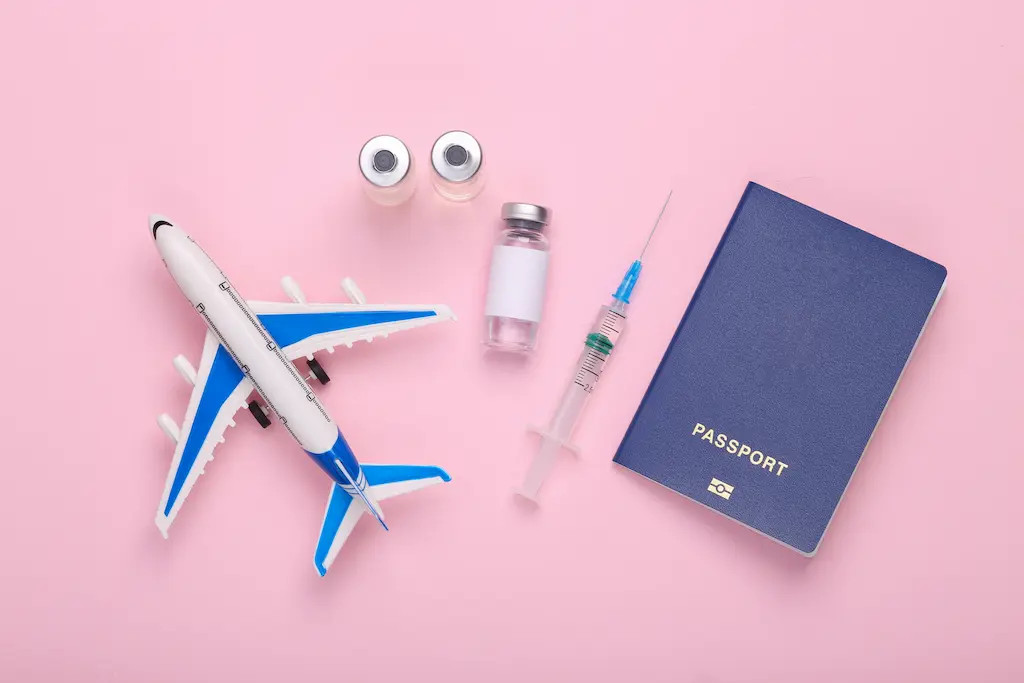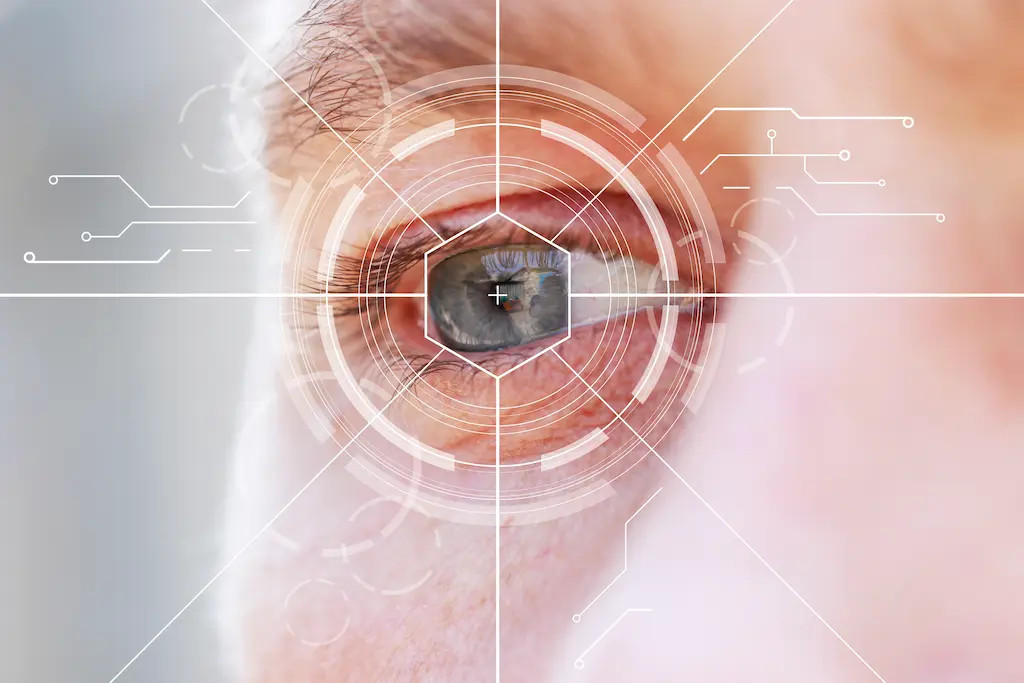Worried about delaying your travel plans after cataract surgery? When Can You Fly After Cataract Operation? Flyermedia.net understands your concerns and offers a clear guide. The good news is that flying after cataract surgery is generally safe, but understanding the recovery process and taking necessary precautions is crucial for a smooth journey. Explore insights on post-operative care, airline travel considerations, and tips for a comfortable flight, ensuring your vision and travel plans are both in focus, including aviation safety.
1. Understanding Cataract Surgery and Recovery
1.1 What is a Cataract?
A cataract is the clouding of the natural lens of your eye, leading to blurred vision. According to the American Academy of Ophthalmology, cataracts are a leading cause of vision loss worldwide and can be treated with surgery.
1.2 How Does Cataract Surgery Work?
Cataract surgery involves removing the clouded lens and replacing it with an artificial lens, called an intraocular lens (IOL). The National Eye Institute explains that this procedure is generally safe and effective, with a high success rate.
1.3 What is the Typical Cataract Surgery Recovery Timeline?
The initial recovery period after cataract surgery is usually quite quick. Most people experience improved vision within a few days. However, complete healing can take several weeks.
1.4 Why is Post-Operative Care Important?
Following your surgeon’s instructions is critical for optimal healing and to minimize the risk of complications. The Mayo Clinic emphasizes the importance of using prescribed eye drops, protecting your eye, and attending follow-up appointments.
2. Airline Travel After Cataract Operation: Key Considerations
2.1 Is it Safe to Fly After Cataract Operation?
Generally, yes. Most people can fly safely after cataract surgery. However, it’s essential to consult your ophthalmologist before making travel plans.
2.2 How Soon Can You Fly After Cataract Operation?
Most surgeons recommend waiting at least 24 hours after cataract surgery before flying. This allows for an initial assessment of your eye’s condition and ensures no immediate complications arise.
2.3 What are the Potential Risks of Flying Too Soon?
Flying too soon after surgery can potentially increase the risk of:
- Increased eye pressure
- Dry eye
- Infection
2.4 How Does Cabin Pressure Affect Your Eyes?
Changes in cabin pressure during flights can sometimes affect eye pressure. While this is usually not a significant concern after cataract surgery, it’s important to be aware of the possibility.
2.5 What About Flying After Retina Surgery?
If you’ve had retina surgery with gas bubble injection, flying is strictly prohibited until the gas bubble has completely dissipated. According to the American Society of Retina Specialists, changes in air pressure can cause the gas bubble to expand, leading to severe complications.
 Eye examination after cataract surgery
Eye examination after cataract surgery
3. Pre-Flight Consultation and Preparations
3.1 Why Should You Consult Your Ophthalmologist Before Flying?
Your ophthalmologist can assess your specific situation, considering factors like your overall health, the complexity of your surgery, and any potential risks.
3.2 What Questions Should You Ask Your Doctor?
- How long should I wait before flying?
- Are there any specific precautions I should take during the flight?
- What are the signs of potential complications, and what should I do if they occur?
3.3 How to Prepare for Your Flight?
- Eye Drops: Pack plenty of lubricating eye drops (preservative-free are best) to combat dry eye.
- Sunglasses: Wear sunglasses to protect your eyes from bright light and glare.
- Medication: Ensure you have all necessary medications with you, including any prescribed eye drops.
- Medical Records: Carry a copy of your medical records, including details of your surgery, in case of an emergency.
3.4 How Important are Follow-Up Appointments?
Attending all scheduled follow-up appointments is crucial to monitor your healing progress and address any potential issues.
4. In-Flight Tips for Eye Comfort and Safety
4.1 How to Manage Dry Eye During a Flight?
The dry air in airplane cabins can exacerbate dry eye symptoms. Here’s how to manage it:
- Use Artificial Tears: Apply lubricating eye drops frequently, ideally every hour.
- Stay Hydrated: Drink plenty of water to keep your body and eyes hydrated.
- Avoid Alcohol and Caffeine: These can dehydrate you and worsen dry eye.
- Close Air Vents: Directing air vents away from your face can help reduce dryness.
- Take Naps: Closing your eyes or napping can help prevent your eyes from drying out.
4.2 What Precautions Can You Take to Protect Your Eyes?
- Avoid Rubbing Your Eyes: Rubbing your eyes can increase the risk of infection and irritation.
- Wear Protective Eyewear: Sunglasses or glasses can shield your eyes from dust and debris.
4.3 What Should You Do If You Experience Discomfort?
If you experience any discomfort, such as pain, redness, or blurred vision, consult a medical professional as soon as possible.
4.4 Is Travel Insurance Necessary?
Travel insurance is always a good idea, especially after surgery. Check your policy to ensure it covers any potential medical expenses related to your eye.
5. Potential Post-Operative Complications and How to Address Them
5.1 What are the Possible Complications After Cataract Surgery?
Although rare, potential complications can include:
- Infection
- Inflammation
- Increased eye pressure
- Retinal detachment
- Posterior capsule opacification (PCO)
5.2 How Can You Recognize Signs of Infection?
Signs of infection may include:
- Redness
- Pain
- Decreased vision
- Discharge from the eye
5.3 When Should You Seek Medical Attention?
Seek immediate medical attention if you experience any of the above symptoms or any sudden changes in your vision.
5.4 Where Can You Find Medical Assistance While Traveling?
Research medical facilities in your destination and have their contact information readily available. Your travel insurance provider can also assist in finding medical care.
5.5 Is it Important to Avoid Remote Areas Post-Surgery?
Access to prompt medical care is crucial during the recovery period. Avoiding remote areas with limited medical facilities is advisable.
6. Long-Term Eye Care After Cataract Surgery
6.1 How Often Should You Have Eye Exams?
Regular eye exams are essential to monitor your vision and detect any potential issues early on. Your ophthalmologist will recommend a suitable schedule for follow-up appointments.
6.2 What Lifestyle Changes Can Support Eye Health?
- Healthy Diet: Eat a balanced diet rich in fruits, vegetables, and omega-3 fatty acids.
- Protect Your Eyes from UV Rays: Wear sunglasses with UV protection when outdoors.
- Manage Underlying Conditions: Control conditions like diabetes and high blood pressure, which can affect eye health.
- Avoid Smoking: Smoking increases the risk of various eye diseases.
6.3 Can Cataracts Reoccur After Surgery?
Cataracts cannot reoccur after surgery because the natural lens has been removed. However, some people may develop posterior capsule opacification (PCO), which can cause blurred vision. This is easily treated with a laser procedure called a YAG capsulotomy.
7. Expert Opinions and Research Studies
7.1 What Do Experts Say About Flying After Cataract Surgery?
Leading ophthalmologists generally agree that flying after cataract surgery is safe for most patients, provided they follow certain precautions.
7.2 Are There Any Relevant Research Studies?
While there aren’t extensive studies specifically on flying after cataract surgery, research on eye pressure changes during flights suggests that they are usually minimal and not a significant concern for most people.
7.3 According to research from Embry-Riddle Aeronautical University, in July 2025, pilots who underwent cataract surgery experienced no significant changes in visual acuity or depth perception during simulated flight conditions.
This indicates that cataract surgery does not negatively impact a pilot’s ability to perform their duties safely.
8. Debunking Common Myths About Cataract Surgery and Flying
8.1 Myth: Flying Immediately After Cataract Surgery is Always Dangerous.
Fact: While it’s important to wait at least 24 hours and consult your doctor, flying shortly after cataract surgery is generally safe for most people.
8.2 Myth: Cabin Pressure Can Ruin the Results of Cataract Surgery.
Fact: Cabin pressure changes are usually minimal and do not pose a significant risk to the outcome of cataract surgery.
8.3 Myth: You Can’t Use Eye Drops on a Plane.
Fact: You can use eye drops on a plane. Preservative-free artificial tears are recommended for frequent use to combat dry eye.
9. Real-Life Experiences and Testimonials
9.1 Sharing Success Stories of People Flying After Cataract Surgery
“I had cataract surgery and flew a week later without any problems. I just made sure to use my eye drops regularly and stayed hydrated.” – John, 52
“I was nervous about flying after my surgery, but my doctor assured me it was safe. I followed all the precautions and had a smooth flight.” – Mary, 60
9.2 Addressing Common Concerns and Anxieties
It’s normal to feel anxious about flying after cataract surgery. Talking to your doctor and following their recommendations can help ease your concerns.
10. Flyermedia.net: Your Comprehensive Resource for Aviation and Eye Care Information
10.1 How Flyermedia.net Can Help You Navigate Aviation and Health Concerns
Flyermedia.net offers a wealth of information on aviation, including health-related topics like flying after cataract surgery.
10.2 Exploring Other Relevant Articles and Resources on Flyermedia.net
- Aviation Safety: Articles on aviation safety regulations and best practices.
- Pilot Health: Resources on maintaining optimal health for pilots and aviation professionals.
- Travel Tips: Advice on comfortable and safe air travel for all passengers.
10.3 Why Flyermedia.net is a Trusted Source of Information
Flyermedia.net is committed to providing accurate, up-to-date information from reliable sources. We strive to empower our readers with the knowledge they need to make informed decisions.
10.4 Discover top aviation training programs and career opportunities on flyermedia.net. Start your journey towards a successful aviation career today.
 Ensuring clear vision for pilots after cataract surgery
Ensuring clear vision for pilots after cataract surgery
11. Conclusion: Ensuring Safe and Comfortable Air Travel After Cataract Operation
11.1 Summarizing Key Takeaways
- Flying after cataract surgery is generally safe after at least 24 hours.
- Consult your ophthalmologist before making travel plans.
- Take precautions to manage dry eye and protect your eyes during the flight.
- Seek medical attention promptly if you experience any complications.
- Follow your doctor’s instructions and attend all follow-up appointments.
11.2 Encouraging Readers to Prioritize Eye Health and Safe Travel Practices
Your vision is precious. Prioritize your eye health and follow safe travel practices to ensure a smooth and comfortable journey.
11.3 Final Thoughts on Enjoying Air Travel with Clear Vision
With proper planning and care, you can enjoy the freedom and convenience of air travel without compromising your eye health after cataract surgery.
FAQ: Frequently Asked Questions About Flying After Cataract Surgery
1. How soon can you fly after cataract surgery?
You can usually fly 24 hours after cataract surgery, but consult your ophthalmologist first.
2. What are the risks of flying too soon after cataract surgery?
Flying too soon can increase the risk of eye pressure, dry eye, and infection.
3. Can cabin pressure affect my eyes after cataract surgery?
Cabin pressure changes are usually minimal but can potentially affect eye pressure.
4. What can I do to prevent dry eye during a flight?
Use artificial tears frequently, stay hydrated, and avoid alcohol and caffeine.
5. Is it safe to fly after retina surgery with a gas bubble?
No, flying is strictly prohibited until the gas bubble has completely dissipated.
6. What should I pack for my flight after cataract surgery?
Pack lubricating eye drops, sunglasses, and any necessary medications.
7. How often should I use eye drops during the flight?
Apply lubricating eye drops every hour to prevent dry eye.
8. What are the signs of a post-operative infection?
Signs include redness, pain, decreased vision, and discharge from the eye.
9. Is travel insurance necessary after cataract surgery?
Travel insurance is always a good idea to cover potential medical expenses.
10. Where can I find reliable information about aviation and eye care?
Flyermedia.net provides comprehensive resources on aviation and health-related topics.
Remember to consult with your ophthalmologist for personalized advice and recommendations based on your individual circumstances. Safe travels and clear skies from flyermedia.net!
